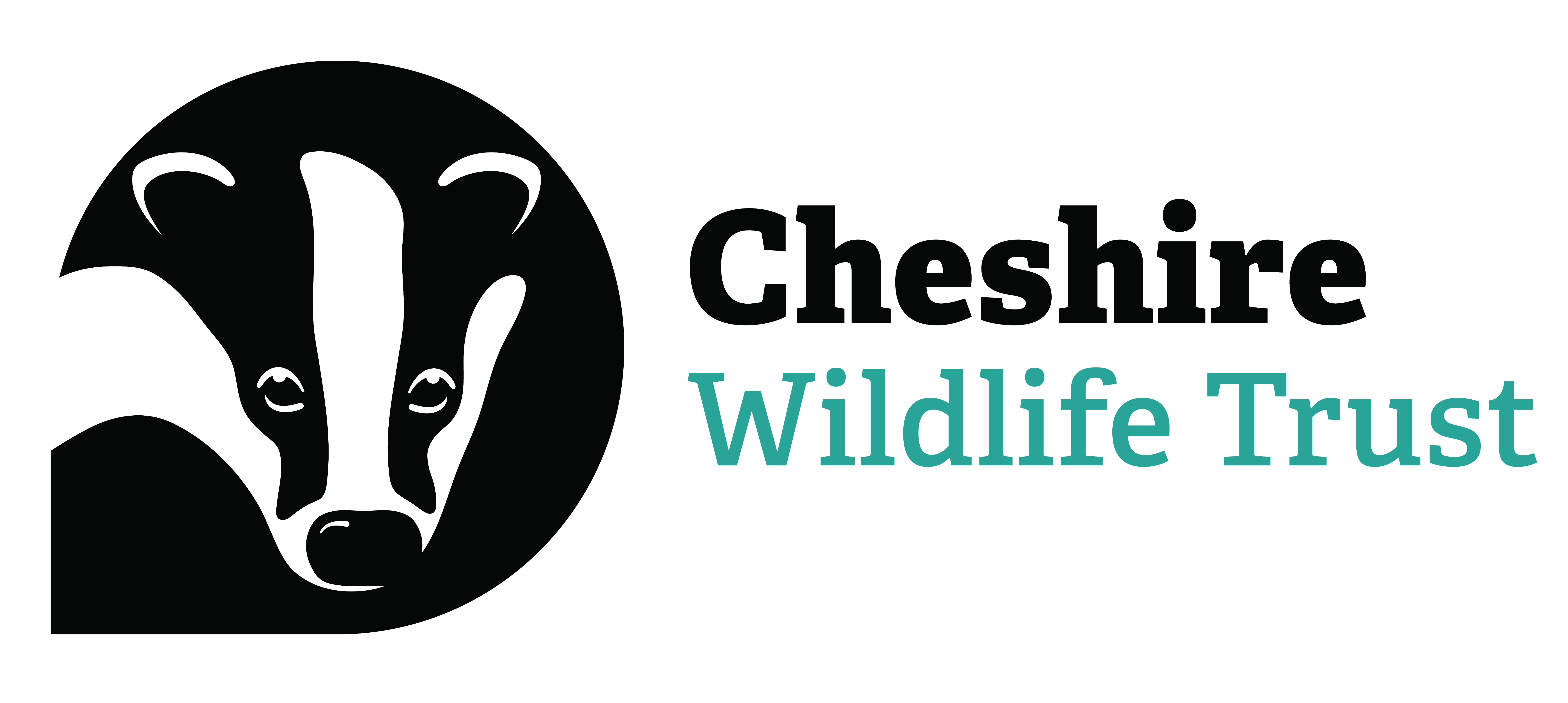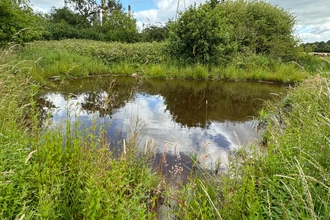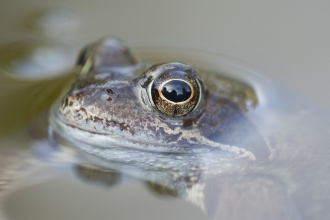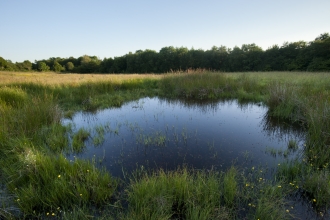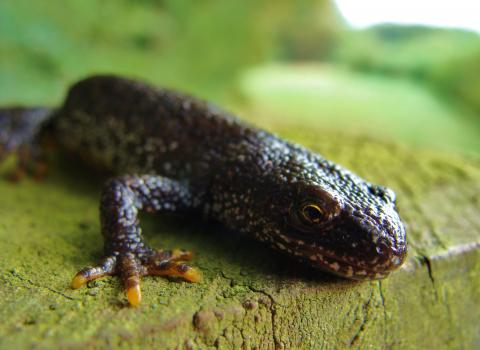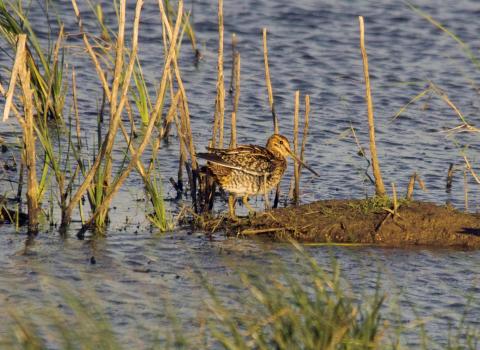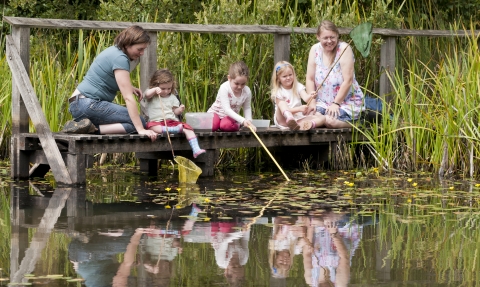
Pond c. Ross Hoddinott/2020VISION
Ponds
Cheshire is the county of ponds and ditches
Recent research shows that 80% of wildlife ponds in the UK are in a ‘poor’ or ‘very poor’ state and we have lost almost half a million ponds in the last century. Ponds have been, and continue to be, lost to urban development and land use change, agricultural drainage and in-filling, fragmentation and through poor management.
If we make an effort to clean up our regions water by encouraging:
- a reduction in the use of fertilisers and pesticides, and leaving buffers around the water’s edge;
- control of invasive species and introduced fish;
- a reduction in the abstraction of water in vulnerable areas,
then ponds will recover and along with them so will our wonderful native wildlife.
We maintain numerous ponds on our reserves and have restored two overgrown ponds and created a mini reedbed in one of our ditches at Bickley Hall Farm. This not only provides habitat but also acts as a filtration system, slowing water down and allowing any nutrient inputs and sediment to settle to the bottom of the ditch instead of making their way to the Site of Special Scientific Interest (SSSI) mere which borders the farm.
Why are ponds important?
The heavy soils of the Cheshire plain lend themselves to holding water, and where there is standing water there is a pond. Ponds support an immense number of plants and animals. They are particularly good for invertebrates like the large red damselfly, common darter and broad-bodied chaser dragonflies, the rare lesser water measurer and the protected lesser silver water beetle.
Go pond dipping and your net may sweep up everything from caddisfly larvae to water boatman, dragonfly nymphs to water scorpions.
Ponds are homes for amphibians including the protected great crested newt, common toad, smooth newt and palmate newt. Water voles burrow into their soft banks, and bats skim the water in search of insects. Birds, such as swans, moorhens and tufted ducks rely on ponds for feeding and nesting, while waders like lapwing, redshank and snipe probe the muddy margins for invertebrates. Furthermore ponds provide stepping stones between isolated patches of habitat, linking up the countryside and allowing species to move about freely.
